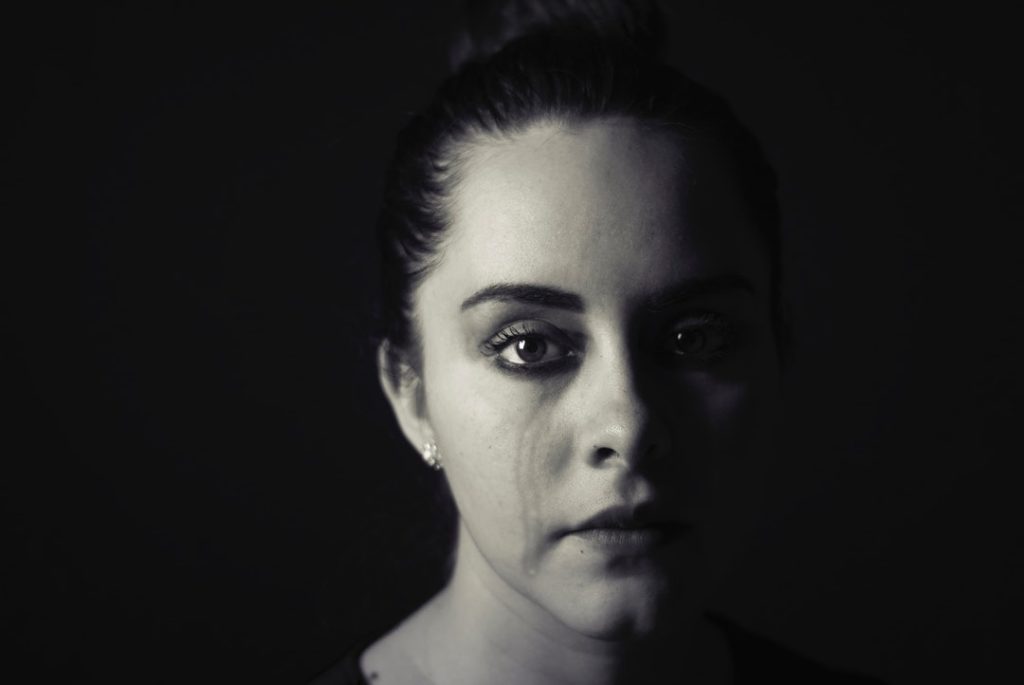Many people with substance use disorder (SUD) also have mental or behavioral problems. This is known as a dual diagnosis.
Dual diagnosis treatment involves simultaneously addressing your mental health problems and substance abuse disorders. People with a dual diagnosis require a treatment strategy that treats both disorders as interconnected problems. You’ll work with your mental health professional or treatment provider to understand how each illness affects the other.
Understanding the connections between drug addiction and mental health issues can allow you to receive effective treatment that will result in a successful addiction recovery.
Table of Contents
What Is Dual Diagnosis?
Dual diagnosis is defined as one or more identified mental health disorders happening concurrently with drug and alcohol addiction. It is when a person is diagnosed with both a drug use problem and a mental health issue occurring at the same time. Dual diagnosis is also known as a co-occurring disorder, dual disorder, or comorbidity.

The dual diagnosis treatment program combines the most effective aspects of mental health care with drug disorder treatment. This can make treatment tricky because each condition needs to be addressed separately. But with the right help, people with a dual diagnosis can recover and live healthy, productive lives.
What Causes a Co-Occurring Disorder?
Millions of people have mental health disorders. Addiction is also very common and often goes hand-in-hand with mental health conditions. Addiction is one of the mental illness’s most common comorbidities (co-occurring disorders). Comorbidity occurs when two or more conditions exist together.
There are several types of mental health problems, but the most common include anxiety disorders, depression, bipolar disorder, and schizophrenia. Addiction can manifest itself in many ways, not only from substance abuse such as drugs and alcohol but also from behavioral health disorders, which include addiction to gambling, food, sex, and shopping.
Addiction and mental illness often co-occur because substances can temporarily relieve symptoms of mental illness. For example, someone with anxiety might drink alcohol to relax, or someone with depression might use drugs to escape their negative feelings.
However, using substances this way is only a temporary fix and can make mental health symptoms worse in the long run. Addiction can also lead to financial, legal, relationship, and job loss.
What Are the Symptoms of a Co-Occurring Disorder?
There is no one-size-fits-all answer to this question, as the symptoms of co-occurring disorders can vary greatly depending on the individual and the specific conditions involved. However, some common signs that someone with co-occurring disorders may experience include the following:
- Depression
- Anxiety
- Mood swings
- Difficulty concentrating
- Memory problems
- Sleep difficulties
- Fatigue
- Loss of interest in previously enjoyed activities
- Substance abuse or dependence
A licensed and qualified mental health professional can conduct a thorough assessment to determine if a co-occurring disorder is present and develop an appropriate treatment plan. Treatment for co-occurring disorders often includes a combination of medication, therapy, and support groups. With treatment, it is possible to manage the symptoms of both disorders and live a fulfilling life.
What Disorders Commonly Co-Occur With Addiction?
Many different mental health disorders can co-occur with addiction. Some of these include the following:
Anxiety
Anxiety is defined as a state of uneasiness, anxiety, or nervousness. It is a typical feeling that assists people in dealing with potentially stressful or dangerous circumstances. At some time in their life, everyone experiences anxiety. However, anxiety may become so overpowering for some people that it interferes with daily tasks such as job performance, schoolwork, and relationships.
Anxiety disorders are the most frequent type of mental illness in the United States, affecting an estimated 40 million people(18%). Anxiety disorders are extremely curable, yet only 36.9% of persons who suffer from them get help.
Addiction is a complicated brain disorder that is tough to conquer alone. Fortunately, several treatment alternatives are available to assist persons battling with addiction in recovering.
Depression
It’s no secret that addiction and depression often go hand-in-hand. In fact, according to the National Institute on Drug Abuse, about 20 percent of people with substance use disorders also suffer from mood disorders such as major depression.
There are several reasons why addiction and depression so often go together. For one, drug use can sometimes be a way of self-medicating depression symptoms. Additionally, the changes that happen in the brain during addiction can also lead to depression.
Whatever the reason, seeking help is essential if you’re struggling with addiction and depression. Treatment for both conditions is often more successful when they’re addressed simultaneously.
Attention-Deficit Hyperactivity Disorder (ADHD)
There is a strong link between ADHD and addiction. People with ADHD are more likely to develop an addiction than those without ADHD because people with ADHD often struggle with impulsivity, leading to risky behaviors. People with ADHD may also self-medicate with drugs or alcohol to cope with their symptoms.
People with ADHD are more likely to develop addictions, particularly to substances like nicotine, alcohol, and cocaine. People who are addicted to drugs or alcohol are also more likely to have ADHD.
There are a few theories about why this is the case. It could be that people with ADHD are more prone to taking risks, which can lead to drug use. Or it could be that the impulsivity of ADHD makes it harder to resist the temptation of drugs. Whatever the reason, it’s important to know the link between ADHD and addiction.
If you or someone you know has ADHD, treatments can help. Stimulant medications like Adderall and Ritalin can improve symptoms of ADHD. And behavioral therapies can teach people with ADHD how to manage their symptoms.
Obsessive-Compulsive Disorder (OCD)
There are many different types of OCD and addiction, but they all share one common goal: to get rid of unwanted thoughts or behaviors. Many persons with OCD are terrified of their compulsions and believe they will never be free. This might result in a sense of hopelessness and despair. It’s not uncommon for people with OCD to also suffer from addiction. Research has shown that people with OCD are more likely to develop an addiction than those without the disorder. There are several reasons why OCD and addiction might co-occur. For one, people with OCD often turn to alcohol or drugs as a way to self-medicate their anxiety and compulsions. Additionally, the compulsions associated with OCD can lead to risky behavior, such as using drugs or alcohol, which can, in turn, lead to addiction.
If you suffer from OCD and addiction, seeking treatment for both disorders is essential. Treatment for OCD usually includes exposure and response prevention therapy, which can help you learn to control your compulsions. Addiction treatment typically includes behavioral therapies and 12-step programs. You can learn to manage both disorders and live a healthy, fulfilling life with treatment.

Post-Traumatic Stress Disorder (PTSD)
It’s not uncommon for people with post-traumatic stress disorder (PTSD) to struggle with addiction. In fact, research has shown that nearly 60 percent of individuals with PTSD also have a substance abuse problem.
There are several reasons why someone with PTSD might turn to substances in an attempt to cope with their symptoms. For one, drugs and alcohol can help numb the emotional pain and memories associated with the trauma. Additionally, people with PTSD often suffer from sleep problems and may turn to substances for relief.
Unfortunately, however, substance abuse only makes PTSD symptoms worse. It prevents individuals from dealing with the root cause of their problems and can lead to other issues, such as financial problems, relationship difficulties, and legal trouble.
Schizophrenia
People with schizophrenia may turn to drugs or alcohol to self-medicate, cope with their symptoms, or simply because they enjoy the high that substances can provide. Unfortunately, addiction can only make schizophrenia worse, exacerbating symptoms and making it more challenging to manage the condition.
People with schizophrenia may be more likely to develop an addiction because of the changes the condition causes in the brain. Schizophrenia can alter how neurotransmitters work, leading to cravings, compulsions, and impulsive behavior.
Additionally, people with schizophrenia may be more likely to seek out substances to self-medicate, cope with their symptoms, or simply because they enjoy the high that substances can provide. Unfortunately, addiction can only make schizophrenia worse, exacerbating symptoms and making it more challenging to manage the condition.
Eating Disorders
Eating disorders and addiction are very different things, but they can often be linked together. People with eating disorders often turn to food as a way to cope with their problems. This can lead to overeating or undereating, both of which can be detrimental to your health. On the other hand, addiction is characterized by a compulsive need for a substance, even if it is harmful to you.
People with eating disorders often turn to drugs or alcohol as a way to cope with their feelings of shame, insecurity, and low self-esteem. And people who are addicted to drugs or alcohol are often consumed with thoughts of food and weight.
Personality Disorders
It’s no secret that addiction and personality disorders often go hand-in-hand. In fact, research has shown that nearly 50% of people with a personality disorder also suffer from an addiction.
What is it about personality disorders that make them so susceptible to addiction? There are a few key factors.
Personality disorders:
- It often leads to self-destructive behaviors.
- It can cause social isolation.
- It can lead to job loss.
- It can lead to financial problems.
- It can lead to legal issues.
- It can lead to relationship problems.
- It can impact every aspect of a person’s life.

What Are the Treatment Options for a Dual Diagnosis?
Treatment for both conditions is essential if you have a dual addiction and mental illness diagnosis.
The best therapy for co-occurring disorders is an integrated strategy in which the mental disease and the drug addiction issue are addressed concurrently. The treatment facility frequently conducts a preliminary assessment to determine the best course of action for every client. Long-term recovery depends on receiving treatment for both illnesses from the same treatment team or provider, regardless of whether your mental health or drug addiction problem started earlier.
Depending on the nature of your problems, addiction treatment programs often include:
Detoxification
For many people, detoxification may be the first step. Healthcare staff or clinicians will closely watch your health throughout your inpatient detoxification for up to a week.
For people experiencing severe or complex withdrawal symptoms, inpatient detox is often more successful than outpatient detox.
Inpatient detox provides the benefits of continual medical care and monitoring given by a trained team and convenient access to therapy for major issues. Furthermore, drug rehab centers keep patients away from alcohol and provide isolation from the drug-using community.
Intensive Outpatient
Intensive outpatient programs include a multidisciplinary treatment team comprised of a psychiatrist, counselor, or social worker who offer a complete approach to assist you in coping with your drug addiction and mental health concerns. These evidence-based mental health treatment services, which are comparable to hospital care, are offered for fewer than three hours per day, up to five days per week. It includes group therapy, where you will learn to recognize and manage relationship problems, improve your problem-solving abilities, and discover new methods to adapt to your challenges. Individual and family therapy, as well as mental medication management, may also be provided.
Residential Treatment/Inpatient Rehabilitation
People with co-occurring illnesses may benefit from inpatient rehabilitation, which provides continuous monitoring and mental healthcare.
Support Groups
Group meetings provide support, counsel, and feedback during the healing process. While in the recovery process, individuals can acquire the assistance they need to maintain sobriety via family therapy.
Behavioral Therapy
The following behavioral interventions have been shown effective for substance abuse treatment and mental health disorders:
Cognitive behavioral therapy (CBT): You may learn coping mechanisms and how to alter unproductive thought patterns with cognitive behavioral therapy.
Dialectical behavioral therapy (DBT): DBT helps lessen self-destructive tendencies. Drug usage, cutting, and suicidal ideas or deeds are a few examples.
Medication
This can entail taking medicine for a mental disorder while undergoing treatment as suggested. The primary pharmacological therapies for controlling substance use disorders include maintenance medicines, agents for regulating cravings, and medications to help with easier withdrawal.
How Illinois Recovery Center Can Help You
Illinois Recovery Center provides a holistic dual diagnosis treatment in Swansea, Illinois.
We recognize that these illnesses frequently coexist, and we provide the individualized treatment that each patient requires in a secure and supportive setting. To feel better, seeking help for these disorders, having an appropriate diagnosis, and participating in therapy are critical.
Illinois Recovery Center provides a range of therapies and activities to assist you in the emotional and physical aspects of healing, resolve any underlying issues, and achieve a holistic and sustainable long-term addiction recovery. Our highly trained also team provides clients with extensive aftercare planning and continuing support to ensure long-lasting recovery.
If you or a loved one suffers from a dual diagnosis and wants to regain control of your life and live a sober life, seeking help is the first step! Our program is designed for men and women struggling with mental illness and substance abuse. To learn more about our dual diagnosis program, contact us today!
FAQ
What is the most common dual diagnosis?



